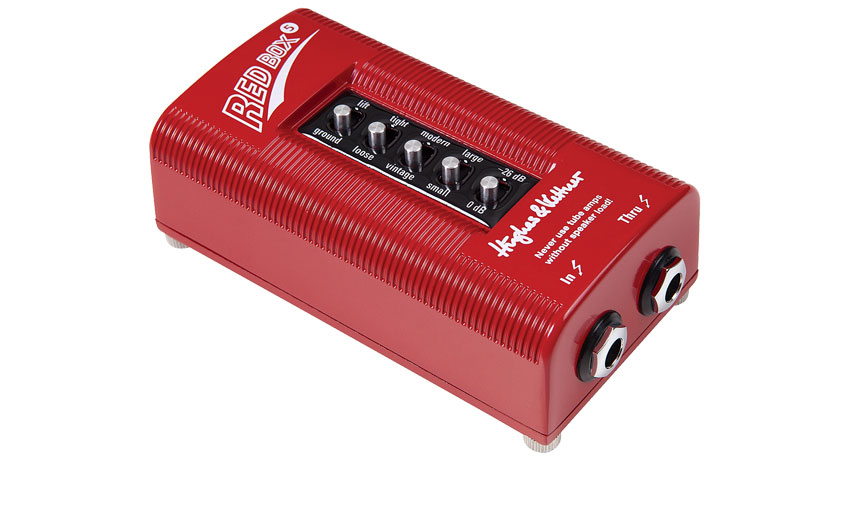MusicRadar Verdict
If it ain't broke, don't fix it - just give it more tonal options. Take one to every gig: your soundman will love you.
Pros
- +
A good product improved. New EQs are great.
Cons
- -
Doesn't offer silent recording capability.
MusicRadar's got your back
If you want to record your amp or send its signal to a mixer for live sound without using a microphone, there are a range of solutions that let you do just that. One of the longest-serving is the Hughes & Kettner Red Box: a DI box with speaker simulation, which has been around in various forms since the 1980s. This latest version adds new EQ options for recreating the sound of various cabinet characteristics.
In Use
"The sound is fat, tight and punchy just like a hard-working 4x12"
The Red Box can take its signal from a line out or effects send, but if you are using a valve amp it's best to get the signal after the output valves, either through a spare speaker output or by connection inline between the amp and speaker - a 'thru' connection will take the unadulterated sound to the speaker, while a balanced XLR delivers the processed signal.
That sound is fat, tight and punchy just like a hard-working 4x12, and with switches for loose/tight, vintage/modern and small/ large options you have access to eight subtle variations.
The Red Box has no power soak, so it's not designed for completely silent recording with valve amps, but in situations where mic'ing is inconvenient, where you want a signal without bleed from other instruments, or where you want an alternative signal to blend with a mic'd signal for more sonic options, it is exactly what you need.
Want all the hottest music and gear news, reviews, deals, features and more, direct to your inbox? Sign up here.
Trevor Curwen has played guitar for several decades – he's also mimed it on the UK's Top of the Pops. Much of his working life, though, has been spent behind the mixing desk, during which time he has built up a solid collection of the guitars, amps and pedals needed to cover just about any studio session. He writes pedal reviews for Guitarist and has contributed to Total Guitar, MusicRadar and Future Music among others.

